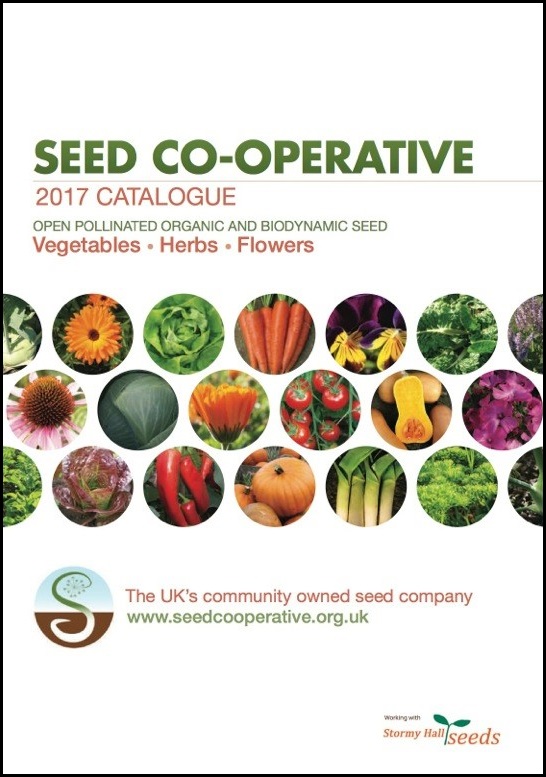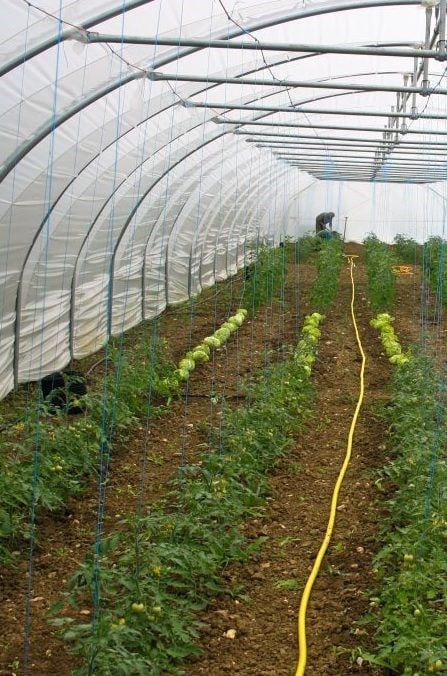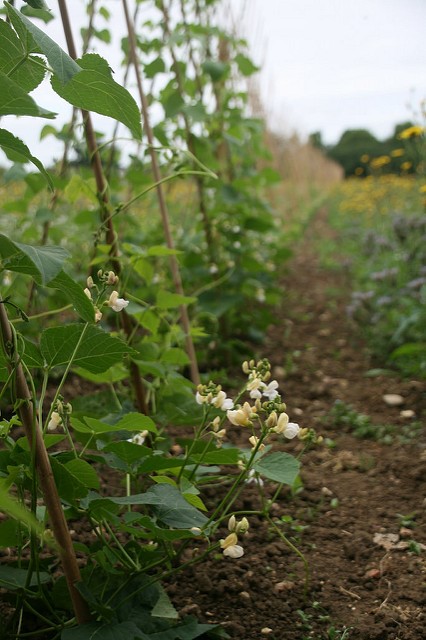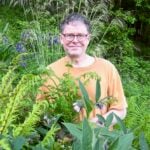Locally adapted varieties, UK-grown seed, and a company owned by growers and gardeners: a new venture aims to future-proof our seed supply by bringing it all back home.
It’s always struck me how smaller seed companies, often those with the most colourful and engaging tales to tell, have the dourest of seed packets. I’m not complaining; in a gardening world where over-hyped ‘added value’ is a commercial obsession, plain paper packets (or small reusable/recyclable plastic wallets), complete with concise sowing and growing instructions, bring welcome relief. They save oceans of ink, and paper packets, unlike unrecyclable foil/paper/plastic combos, can go straight into my compost bin. But feeding compost worms isn’t uppermost in my mind when clicking ‘submit order’; the background, ethics and ethos behind the seed sellers – who are sometimes the seed growers too – are my main concern.

So imagine my delight on discovering that one of my favourite, no-frills, ‘small is beautiful’ seed suppliers – Stormy Hall Seeds – is embarking on a new chapter in its own rich story. Stormy Hall have been in the seed growing and selling game for many years. Based at Botton Village in Yorkshire, they sell seeds which are certified organic and/or biodynamic to growers and to gardeners. Much of the raising, processing and sorting of seeds is done by members of the Camphill Village Trust special needs community.
The page-turning moment for Stormy Hall is that their seeds are now being sold through a new community-owned seed company – the Seed Co-operative. Its ‘manifesto’ impresses: ‘We grow seeds for everyone, and for the health and well being of people and planet. We’re not interested in tricksy seed biotechnology, or dominating the world’s seed supply. Instead, we believe passionately in breeding open pollinated seeds that everyone can grow, everyone can save for the next year, and everyone can afford. All our sustainable futures depend on protecting their genetic biodiversity. We have been founded as one of the first of a new wave of collaborative and effective, ecologically orientated, seed producers for the UK. We seek to work with farmers, growers, gardeners, chefs, nutritionists, herbalists, scientists and the whole community of people working towards improving access to healthy food produced on a healthy planet.’ Refreshing, eh?

The Seed Co-operative’s goal is to establish a network of seed growers across the UK in order to increase the proportion of UK-grown, open pollinated organic/biodynamic seeds available; at present 80% of supplied seed is imported from other countries, primarily Europe. Almost all of the (non-organic) seeds used for growing crops in the UK – along with most of the seeds inside glossy packets – come from Europe or further afield. In distant lands, growing conditions for the plants (as well as working/living conditions for the people tending them) may be strikingly different from those found here.
These seeds may be full of life and capable of turning in a decent crop (they could also fail), but they weren’t bred or raised here, on the land where they’re to be sown. They’re not attuned or adapted to the subtle mix of conditions found in a particular locale. If you’re a plant variety, you need to be around for a while – to get your roots under the soil – in order to make the subtle genetic shifts and tweaks and realignments that allow you to flourish in a world where environmental change accelerates at an unnerving pace.
One of the Co-operative’s key priorities is to actually grow increasing amounts of organic/biodynamic open pollinated vegetable seed here in the UK. This will not only lessen our reliance on imported seeds, but it will allow existing varieties to continually adapt to and perform better during our often mercurial growing seasons. In tandem, new UK-tailored varieties will be steadily developed, often over decades, for our unique crop-growing regions. Over time, resilience will be built back into our food system, while plant breeding and seed production skills will be revitalised, shared and supported among the co-op’s expanding network of small-scale seed producers.

Breeding and using ‘open pollinated’ vegetable varieties is key to all of this. Open pollination is the means by which plants naturally reproduce and exchange characteristics from one generation to the next. Seeds collected from open pollinated crops, where plants either self- or cross-pollinate (or a mix of both), will breed true to type, meaning their offspring will always closely resemble their parents and pass on their characteristics – but this doesn’t mean all the resulting plants will be identical. An open pollinated variety of carrot, for instance, is more akin to a genetically diverse population (or ‘landrace’) of seeds; not every carrot that grows will be exactly the same size, shape, texture or flavour, and they won’t all be ready to harvest at the same time (a godsend for smaller food growers who need staggered harvests, not gluts).
It’s this inbuilt diversity, a crop’s innate, limitless ability to adapt to shifting environmental conditions, that marks out open pollination as perhaps the most equitable and future-proofed plant breeding technology there is. The Co-operative have the perfect descriptor: ‘open pollinated seed is like the open source software of food, the genetic makeup within belonging to no one and everyone.’ Fundamentally, this is about keeping the future of our food in the hands of the collaborative many, not the controlling few. And don’t forget the ethics: these are seeds that ‘everyone can grow, everyone can save, and everyone can afford.’ You can’t do that with an F1 hybrid.
To get an F1, two distinct parents are crossed together under strictly controlled, closed conditions that enforce inbreeding. The resulting seeds (which cost more due to the work involved) are guaranteed to produce vigorous, uniform plants which are all ready to harvest at the same time. Earth-friendly gardeners can use F1s to good effect – think clubroot-resistant brassicas – but if you try saving their seeds, the resulting offspring won’t breed true. To get the plants you started out with, you must keep on buying more F1 seeds.

If the idea of open source plant breeding chimes with your gardening outlook, the easiest way to support the Seed Co-operative is to buy their seeds; their no-nonsense catalogue is a match for the glitziest out there. If it’s a loud chime, there is another way you can help.
The Co-operative have purchased a small Lincolnshire farm, Gosberton Bank Nursery, which will act as a hub for the breeding, production, processing, selling and distribution of open pollinated seed, as well as for knowledge sharing. They’ve raised £250,000 for the initial purchase, with another £500,000 still to be found. If you’ve ever dreamt of becoming a co-owner of a seed company, now’s your chance. For a minimum investment of £100 (the current share offer ends on 31 March 2017), you can help nurture the future of open pollinated plant breeding in the UK. There are no dividends for now, and no interest will be paid; any returns will be dug back into the work of the Co-operative.
We can’t know for sure what the future holds, but open pollinated vegetable varieties, which we can all grow, save and afford, look best placed to adapt to whatever it flings at us.
Text © John Walker. Images courtesy of the Seed Co-operative
Find John on Twitter @earthFgardener


